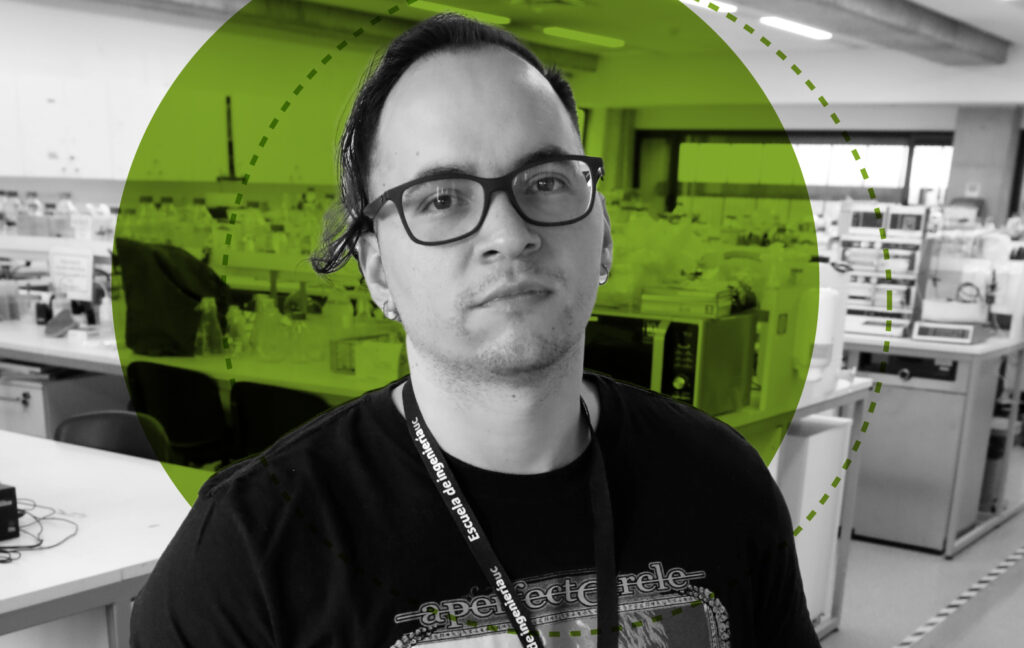6 August 2024 – The UN Environment Programme (UNEP) says the world is ‘choking on plastic’ with 400 million tonnes of plastic waste produced each year. EMBO Global Investigator Cesar Antonio Ramirez Sarmiento is helping address the problem by seeking to develop new plastic-eating enzymes able to work at room temperature.
His interest on these enzymes started early in his life. He recalls his mother telling him insects would eat the plastic bags she used to protect plants in the garden, followed by the subsequent revelation in recent years that certain insects have specific enzymes in their saliva and gut that degrade polyethylene. “After that it was demonstrated that different enzymes were able to degrade other plastics, such as PET and mostly bioplastics” he says.
Many enzymes that degrade the PET polymer found in plastic bottles have been discovered in plant compost as they primarily target plant polymers. “The current industrial implementation of these enzymes to degrade plastic requires very high temperatures. But if we want to consider plastic-degrading enzymes for bioremediation of rivers and streams or to lower the cost in industry you need enzymes that work efficiently at room temperature,” he says.
Grants from an NGO in the United States and from the International Centre for Genetic Engineering and Biotechnology in Italy are currently funding his group to use enzyme engineering and artificial intelligence (AI) to design improved enzymes that operate at room temperature.
“This is pretty new for Chile and even for the Latin American region,” he says. “We published an article last year in Protein Science in which we engineered a PET-degrading Antarctic enzyme discovered by our group using semi-rational design. While the natural enzyme works at 25 degrees, the engineered enzyme degrades plastics more efficiently around 40 degrees.”
Ramirez Sarmiento says the work should always occur under controlled conditions. “We don’t know much about the repercussions of degrading plastics in the ocean, and we also don’t know whether the degradation products of PET are more harmful than the plastic itself,” he says. But he is already thinking ahead. “How can we bio-transform plastic into a molecule that is of high economic value? For that we are transitioning from doing enzyme engineering into metabolic engineering,” Ramirez Sarmiento says.
“I think of myself as a protein scientist. My curiosity is driven by understanding how proteins work, whether it’s a transcription factor regulating gene expression or it’s a channel regulating incorporation of ions in a cell – or if it’s enzymes, I want to understand how they work,” he says. “And by extension, if they have an application for the benefit of society, then I want to make them better.”



